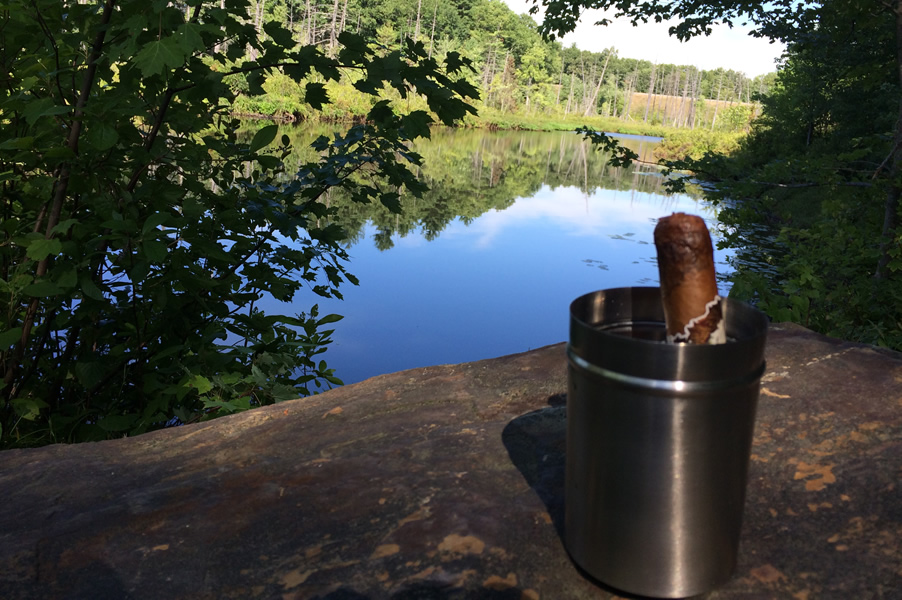
Whenever I go out to train and someone asks where I am going, I simply reply, “To church.”
To me, being in a field or at a river’s edge with my Lab, a pouch full of bumpers and a good cigar is meditative. Yet it also has a purpose. I am there to teach my dog to be the best hunting dog she can be, to improve my training skills with every lesson, and to have fun doing it. But even if you don’t hunt, training a Lab offers challenges and rewards like no other sport or hobby.
Whether you train for hunting or whether you train as a hobby, I promise that you will marvel at the depth of innate ability within your lab and it will make you feel like you are serving his true purpose. You will discover how he revels in finding a bumper he didn’t know was in that high grass fifty yards away. And the fact that you directed him to it with a whistle and hand signals will lift your spirit to amazing levels.
If you are training for duck hunting, you will soon realize that because hunting seasons are so short you actually spend more time training than hunting. You will also recognize that some of your Lab’s most spectacular retrieves are performed while training. Training as a hobby gives you the opportunity to enjoy the sport away from the duck blind gaining immeasurable fun and satisfaction to supplement the short duck seasons. Training and hunting are actually an extension of the same experience.
Even if you’re not into hunting, training can add a new dimension to your relationship with your Lab and the ‘requirements’ that I talk about in this website can be relaxed. If it’s strictly a hobby for the sport of it, your end game requirements won’t have to be as precise as if training for hunting.
If you really get into it, or even if you’re just curious, research your closest Labrador Retriever Club and go watch what they do.
Training is a hobby that inserts you in nature at sunrise or sunset, in breathtaking fields, along captivating riverbanks and ponds, by yourself or with the family, but always with your Lab.
Amen.
It never occurred to me to exercise/train a dog specifically with its breed and natural instinct in mind. I have to say, that makes so much sense and it shows respect for the breed of dog you have chosen. I had an ‘Aha moment’ once I was done reading your advice.
My daughter’s first dog was a yellow lab, Isaac. He was lovable and sweet, but more than that sooooo energetic.
Your article reminded me of a story my daughter and her husband told me about how they would hit tennis balls with a tennis racquet into a field. Now we all know how far a tennis ball can go with a tennis racquet swing behind it. This dog would never tire. My daughter and her husband would be tired of doing it long before Isaac would want to stop. He loved retrieving sticks as well.